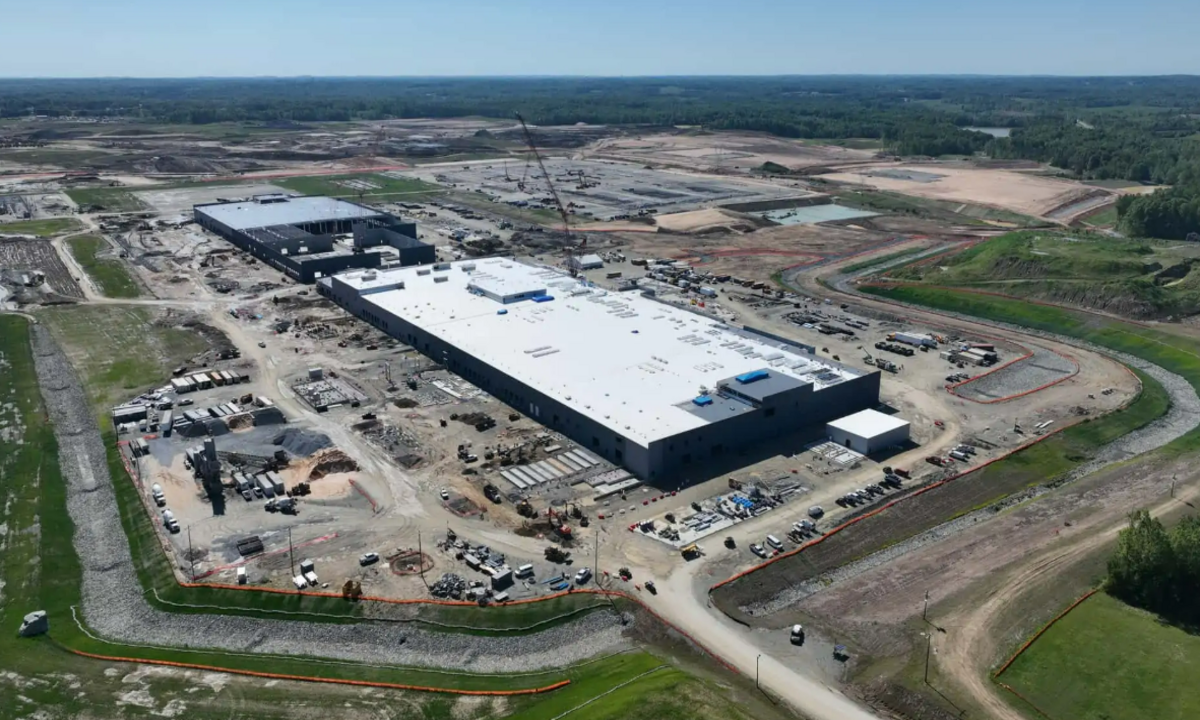Toyota has officially opened its first electric vehicle (EV) battery manufacturing facility in the United States. Located in Liberty, North Carolina, this $14 billion investment marks a significant step in the Japanese automaker’s commitment to electrifying its vehicle lineup.
As the first of its kind outside Japan, the plant will play a pivotal role in Toyota’s future plans for EV production and expanding its presence in the North American market.
Facility Overview: What’s Inside Toyota’s New Plant?
The new facility, Toyota Battery Manufacturing North Carolina (TBMNC), spans a massive 1,825-acre site and will focus on producing batteries for Toyota and Lexus electrified vehicles. The plant has a total of 14 assembly lines. Of these, 10 lines will focus on producing batteries for battery electric vehicles (BEVs) and plug-in hybrid electric vehicles (PHEVs), while the remaining 4 lines will produce batteries for hybrid electric vehicles (HEVs). This is a huge step forward for Toyota, as it looks to ramp up its production of electric and hybrid vehicles.
By 2030, Toyota aims to produce 30 gigawatt-hours (GWh) of batteries per year at the plant. This output would be enough to power over 400,000 all-electric cars each year, equipped with 70-kilowatt-hour batteries. This new facility is expected to help Toyota significantly increase its EV production capacity and meet the growing demand for electric vehicles in the North American market.
Strategic Importance: Expanding Toyota’s EV Presence
This new battery plant is not just about manufacturing batteries; it is part of a broader strategy to expand Toyota’s EV presence in the United States. Currently, Toyota has only one all-electric car in its U.S. lineup—the BZ4X crossover. However, the company has ambitious plans to launch between five and seven new EV models in the U.S. in the next two years.
In addition to the new battery plant, Toyota is also investing in its Georgetown, Kentucky facility, where production of a new three-row electric SUV is set to begin in 2025. The North Carolina plant will play a crucial role in supporting the manufacturing of these new EVs, providing the necessary batteries to meet the demand for Toyota’s growing electric lineup.
Economic Impact: Job Creation and Sustainability
The new North Carolina facility is expected to create over 5,000 jobs in the region, with opportunities spanning a variety of roles, including engineering, production, and quality control. In addition to the job creation, the plant will operate on 100% renewable energy, reflecting Toyota’s commitment to sustainability and reducing its carbon footprint. This is part of the company’s broader environmental goals, which include achieving carbon neutrality by 2050.
The economic benefits go beyond just job creation. The plant will contribute to the local economy and help establish North Carolina as a key player in the growing electric vehicle market.
What’s Next for Toyota and EVs in the U.S.?
Looking ahead, Toyota has ambitious plans for its electric vehicle future. The company wants to offer electrified options for every model in the Toyota and Lexus lineups globally by 2025. In North America, Toyota aims to expand its EV lineup by introducing 30 BEV models by 2030. The North Carolina plant will be essential in helping the company meet these goals.
The plant’s opening is a major step in Toyota’s efforts to catch up with other automakers that have been more aggressive in their EV plans. Toyota, once considered a latecomer in the EV race, is now putting the pieces together to launch a competitive lineup of electric vehicles in the U.S.
Conclusion: A Bright Future for Toyota’s EV Manufacturing in America
With the completion of its first EV battery manufacturing facility in the U.S., Toyota is positioning itself to play a major role in the future of electric vehicles. The North Carolina plant not only supports the company’s North American EV production but also strengthens its commitment to sustainable energy.
As Toyota ramps up its efforts to introduce more electric vehicles and meet the growing demand for clean transportation, the North Carolina plant will be at the heart of its strategy. The investment in EV battery manufacturing is a significant step in Toyota’s drive to shape the future of mobility.
Disclaimer—Our team has checked this article to ensure its accuracy and eliminate any misinformation. We are committed to providing clear and reliable information for our readers.


